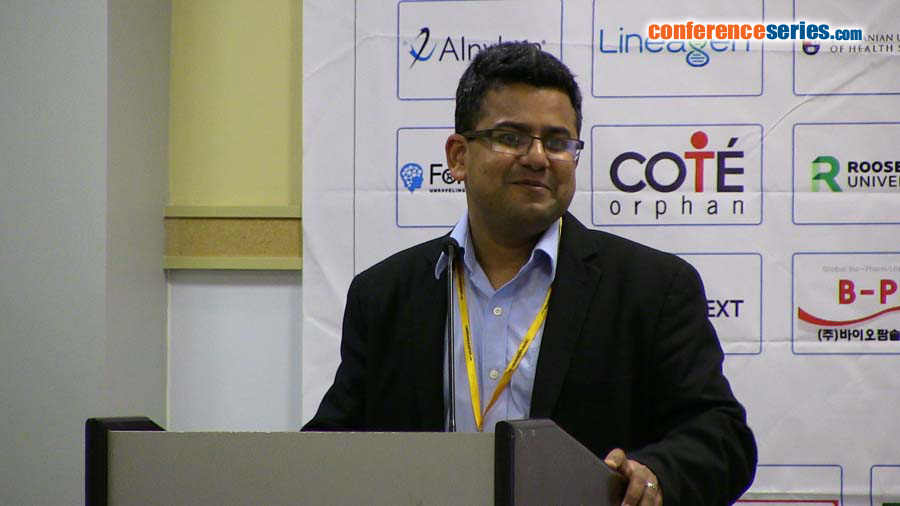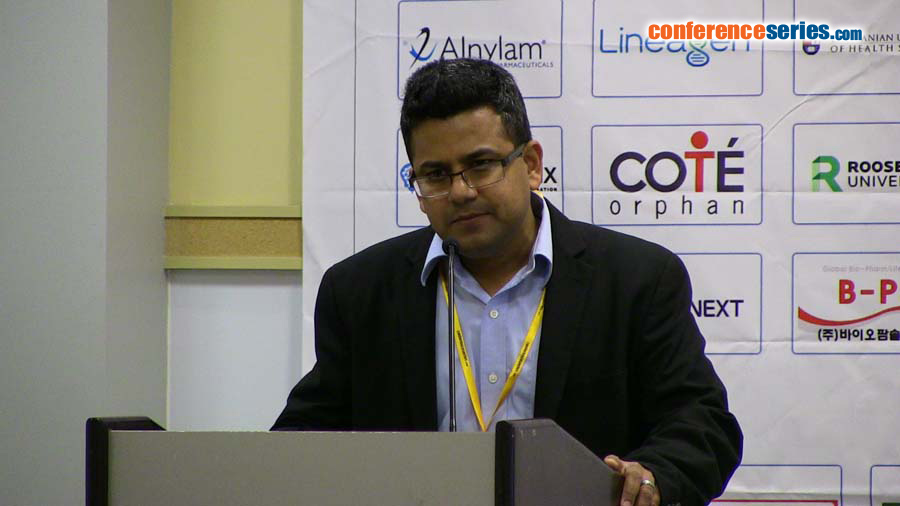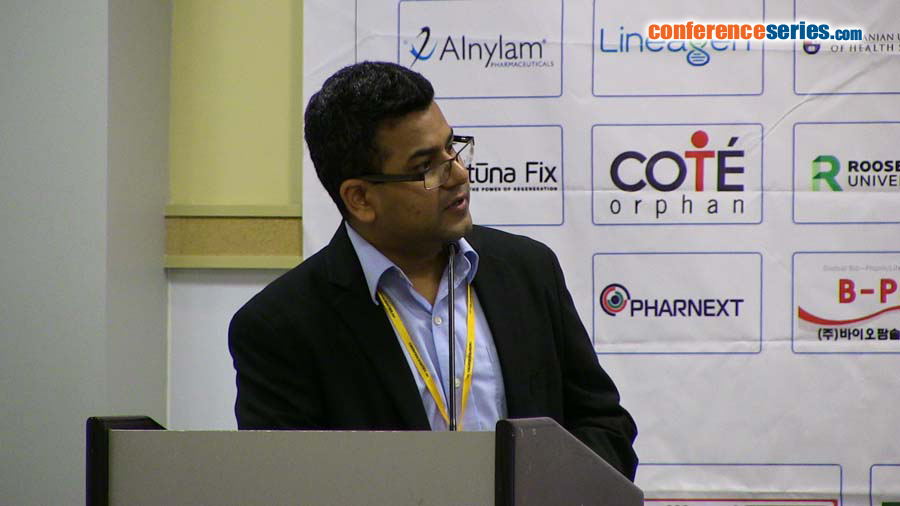Prasanth Puthanveetil
Roosevelt University College of Pharmacy, USA
Title: Overlap of metabolic and endocrine dysregulation during orphan disease-special focus on cardiovascular disease
Biography
Biography: Prasanth Puthanveetil
Abstract
Statement of the Problem: The prediction of rare diseases has always been a limiting factor associated with these complications. By the time the presence of disease is confirmed the onset of disease must have been prominent leading to devastating and uncontrollable aftermaths. Understanding the complexity of events occurring during these disease conditions would provide us with a better insight not only to treat these diseases but also to prevent the debilitating effects in the respective tissues and save the organ systems or prolong or hinder the damage. This study demands the need for understanding the metabolic and endocrine dysfunctions during a rare disease in detail and thus not only open up a new path for the scientists to explore the pathophysiological molecular mechanisms in detail but specifically help the clinicians/physicians to understand therapeutic strategies.
Hypothesis and Methodology: Wolff Parkinson White Syndrome is one of rare disease connected to the cardiovascular system. Multiple factors have been shown to play an important role in the etiology of this disease. A major share goes to PRKAG2 gene mutation leading to glycogen accumulation in the cardiac tissue and resulted in atrial fibrillation in patients. Studies from preclinical data suggest that over activation of AMPK protein, the major energy sensor or metabolic switch could be playing an important metabolic role in bringing about this complication. Some of my previous studies using glucocorticoid excess revealed that they were able to increase AMPK. Thus using in vitro and in vivo model systems, I was able to see an increase in cardiac AMPK and glycogen accumulation. This raises the concern that the pathogenesis of Wolff Parkinson White Syndrome can result from any other route rather than just PRKAG2 conclusion.
Conclusion & Significance: Glucocorticoids in excess in heart resulted in uncontrollable AMPK activation with resulting glycogen accumulation in cardiac tissue. Physiological situations like fasting and stress and pathological conditions like Cushing’s syndrome could result an increase in glucocorticoid excess release into the systemic circulation. Now whether these metabolic changes associated with endocrine abnormalities could result in Wolff Parkinson White like syndrome or no is not fully studied and is one of the area I would like to shed more light upon and tried to minimize the detrimental effects.




